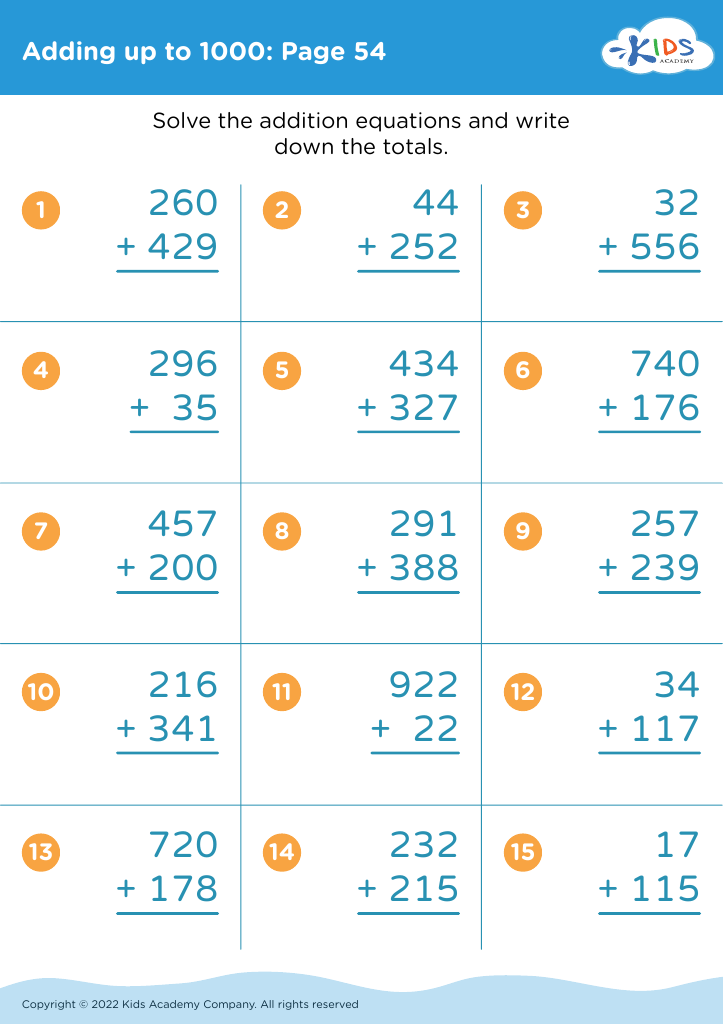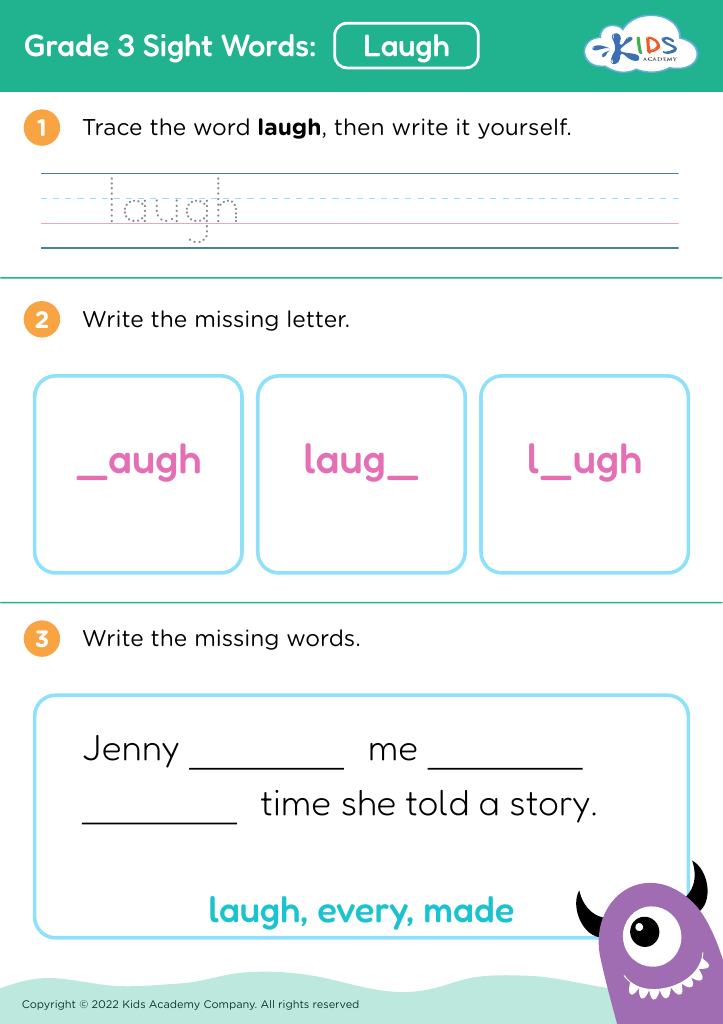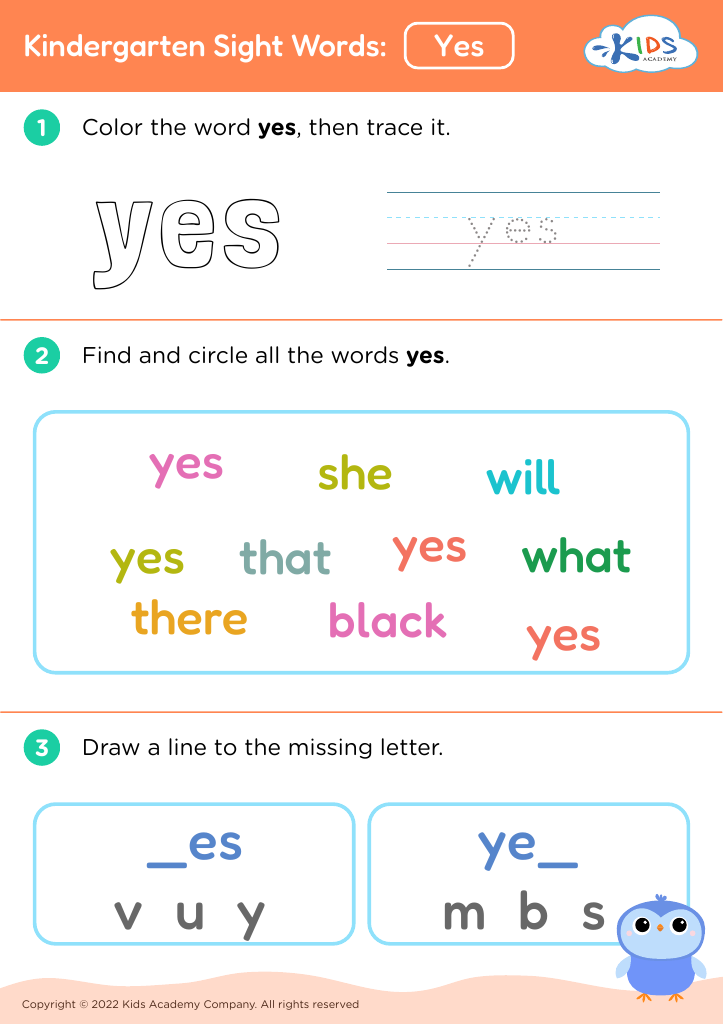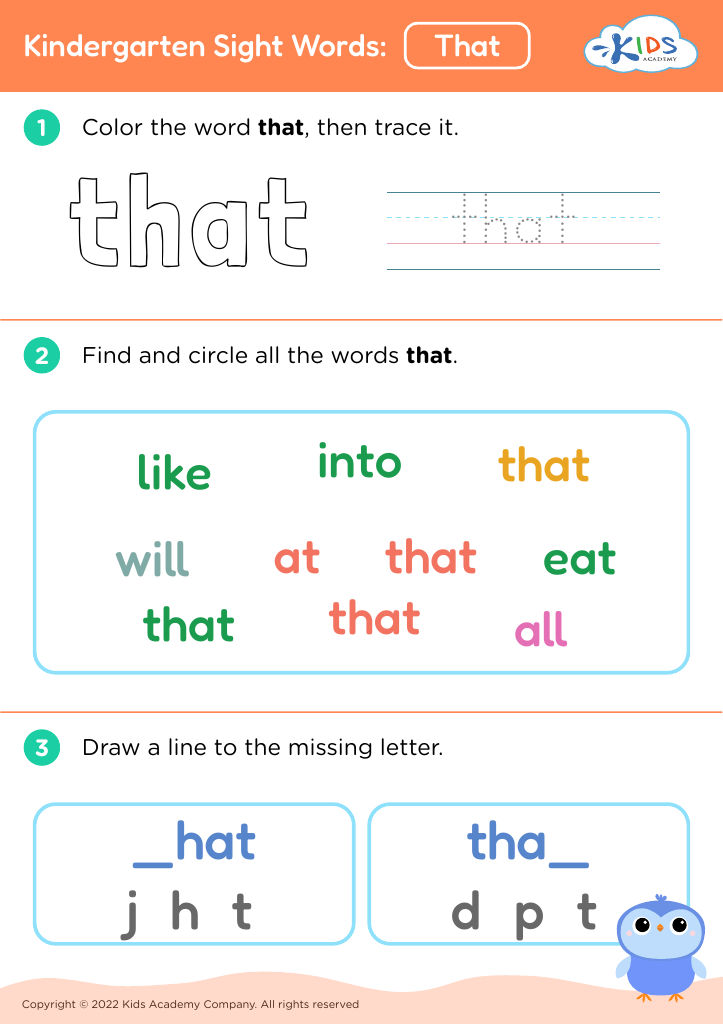Practice subtraction Worksheets for Ages 4-8
11 filtered results
Difficulty Level
Grade
Age
-
From - To
Subject
Activity
Standards
Favorites
With answer key
Interactive
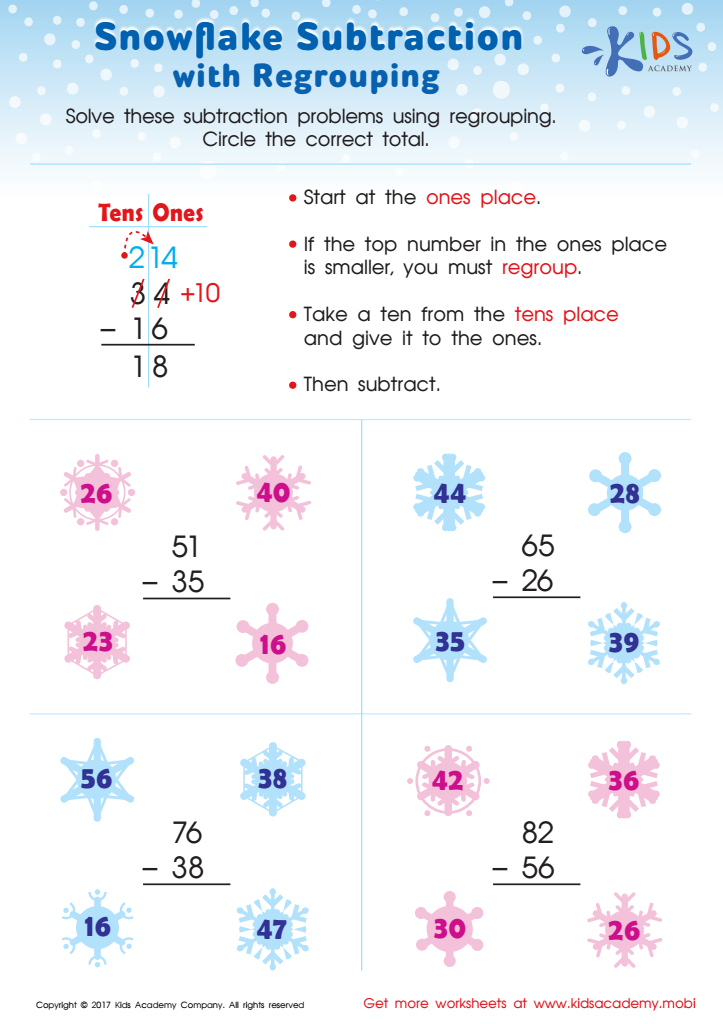

Subtraction With Regrouping Worksheet: Snowflake
It's a great way to learn on a cold winter day.
Teach your child regrouping while subtracting with this winter-themed activity! Have them refer to the instructions at the top and solve each problem using the strategy. Snowflake Subtraction is a great way to learn on a cold winter day - choose the correct answer and have fun!
Subtraction With Regrouping Worksheet: Snowflake
Worksheet
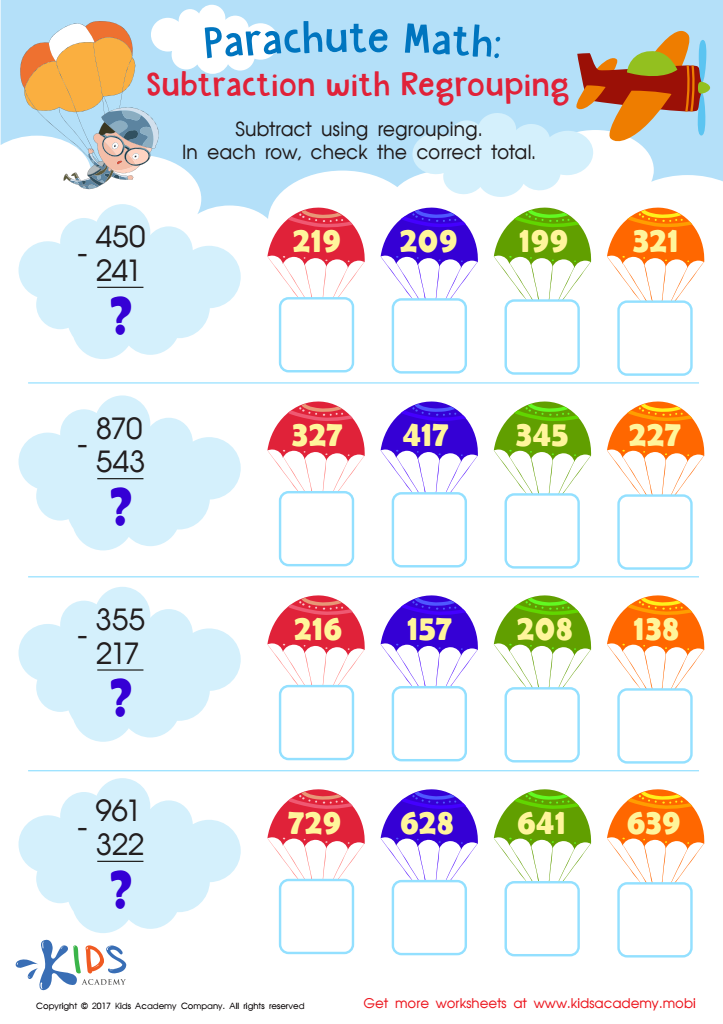

Subtraction with Regrouping for 3rd Grade Worksheet
Kids will have fun mastering subtraction with regrouping with this parachute-themed worksheet! Perfect for 3rd graders, it provides plenty of practice so your child can take to the skies in their math understanding.
Subtraction with Regrouping for 3rd Grade Worksheet
Worksheet
 Assign to the classroom
Assign to the classroom
